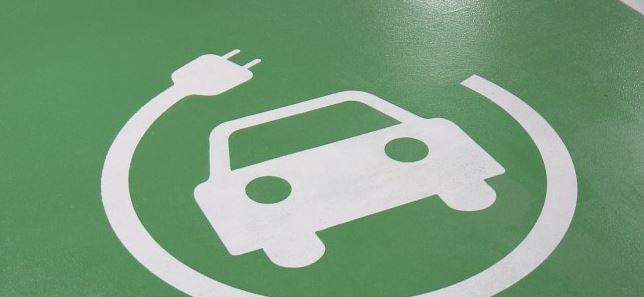[Newsmaker] EU battery alliance may become threat to Korean firms
By Shin Ji-hyePublished : Oct. 17, 2017 - 15:52
The European Union launching a battery alliance and European carmakers’ growing investment in battery plants may threaten Korea’s current technological lead in the global electric car battery market, industry watchers said.
Last week, the European Commission launched the bloc’s battery alliance setting aside 2.2 billion euros ($2.6 billion) for the establishment of a full value chain of batteries in Europe. The commission invited European automakers, including Renault and Daimler, which are under increasing pressure to electrify their powertrains to meet toughening global emissions regulations.

Europe’s latest push for battery development is interpreted as its strong will to play catch-up with the dominant battery players, Japan, Korea and the US. Currently, many of the European cars rely on Korean battery firms, Samsung SDI, LG Chem and SK Innovation, for their green vehicles.
“The European governments’ strong drive to invest in the battery doesn’t just mean improving their battery performance. It signals they may create invisible walls to protect their industries from outsiders,” said Lee Ho-geun, a professor of automotive engineering at Daeduk University.
Once the European firms are capable of developing their own batteries, they can create their own, for instance, environmental standards to exclude foreign battery makers, he explained.
Samsung SDI and LG Chem, once dominant battery players in China, are now facing a setback in the nation after repeatedly being left out from the Chinese government’s subsidies due partly to the national drive to foster the local battery industry.
The struggling firms are now turning their sights to Europe with plants being constructed in the region, but industry watchers say they may face the same challenges there in the next five or 10 years.
“Battery is a key component for electric vehicles, accounting for 40 percent of production costs. European governments and automakers will not sit by and watch Korean firms dominating the market,” said Lee Hang-koo, a senior researcher at the Korea Institute for Industrial Economics & Trade.
European Commission Vice President Maros Sefcovic said during last week’s alliance event that they need to act fast and collectively to overcome the lack of a European battery cell manufacturing base that jeopardizes the position of EU industrial customers.
Dealim University automotive professor Kim Pil-soo said Korea also needs to better protect its industry by forming a similar alliance among local automakers, battery makers and the government that are all now playing individually.
An alliance could speak for individual battery players in the global market and could seek ways to cooperate with, for instance, Europe’s alliance, he said.
Some analysts, however, say it would still take some time for European automakers to steal market share from the Korean firms as they lack cell skills. Battery plants of European carmakers, including Daimler, will assemble packs only, and cells, the key battery component, will still be supplied from Asia.
“Even if they start to build their own battery cells, it would take more than five years to be ready for mass production with cost competitiveness and proven safety,” said Calvin Lee, an executive at SNE Research, a local research firm specializing in electric car batteries.
The three Korean firms declined to make official comments on the European battery alliance, but an official from one of them said, “It is true the EU battery alliance is viewed as a threat (to us) in the long term. But, their move doesn’t seem to affect our business in the short run unless they succeed in next-generation battery technologies that can outstrip current lithium-ion batteries.”
The global electric vehicle market is predicted to grow from 2.4 million units in 2015 to 8.5 million units in 2020, according to SNE Research. Accordingly, the global EV battery market will rise from 28 gigawatt hours to 309 gigawatt hours during the period.
By Shin Ji-hye (shinjh@heraldcorp.com)






![[From the Scene] Monks, Buddhists hail return of remains of Buddhas](http://res.heraldm.com/phpwas/restmb_idxmake.php?idx=644&simg=/content/image/2024/04/19/20240419050617_0.jpg&u=20240419175937)









![[From the Scene] Monks, Buddhists hail return of remains of Buddhas](http://res.heraldm.com/phpwas/restmb_idxmake.php?idx=652&simg=/content/image/2024/04/19/20240419050617_0.jpg&u=20240419175937)

![[KH Explains] Hyundai's full hybrid edge to pay off amid slow transition to pure EVs](http://res.heraldm.com/phpwas/restmb_idxmake.php?idx=652&simg=/content/image/2024/04/18/20240418050645_0.jpg&u=20240419100350)

![[Today’s K-pop] Illit drops debut single remix](http://res.heraldm.com/phpwas/restmb_idxmake.php?idx=642&simg=/content/image/2024/04/19/20240419050612_0.jpg&u=)